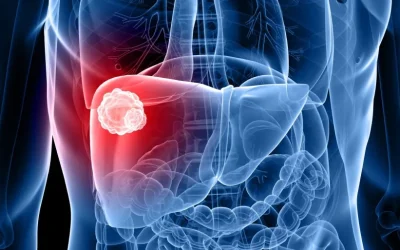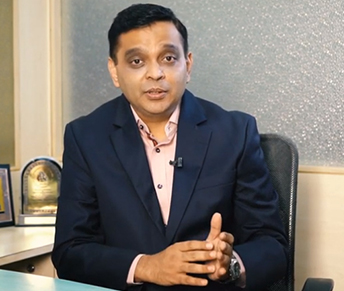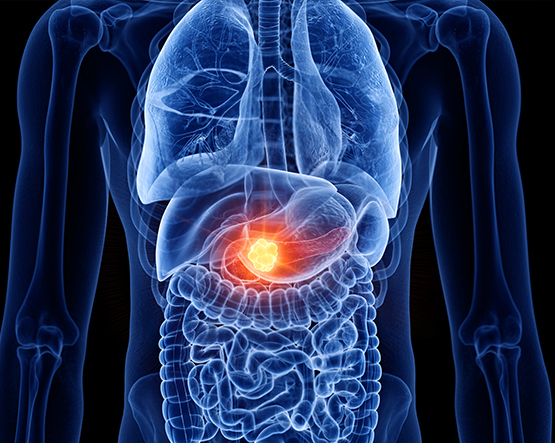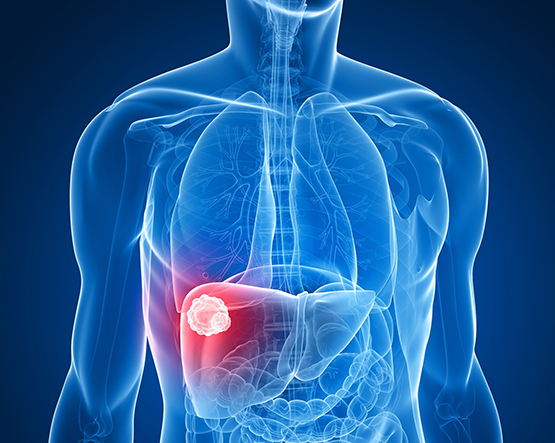Gall Bladder And Biliary Cancers
About Gall Bladder and Bile Duct Cancer
Gall bladder cancer is fairly common in India, especially in the Northern parts. When gall bladder cancer is discovered at its earliest stages, the chance for a cure is very good. Unfortunately, most gall bladder cancers are discovered at a late stage, when the prognosis is often very poor. Hilar cholangiocarcinoma( Klatskin’s tumour) is cancer involving the confluence of the right and left hepatic ducts.
These cancers usually present in the 6th decade of life
Risk factors for gallbladder cancer
- More in females
- Gall stones and polyps
- Abnormal pancreaticobiliary junction
- Carcinogen exposure

Risk factors for hilar cholangiocarcinoma
- Primary sclerosing cholangitis
- Parasitic infection ( clonorchis sinensis & opisthorchisviverreni)
- Smoking
- Choledochal cysts
Common Signs and Symptoms
- Abdominal pain, particularly in the upper right portion of the abdomen
- Abdominal bloating
- Yellowing of the skin and whites of the eyes (jaundice)
- Losing weight without trying
- Nausea
Diagnosis of biliarycancers:
Physical examination: Your doctor will examine your abdomen to look for any lump in the upper abdomen on the right side. Your eyes and skin will be examined to look for signs of jaundice
- Blood investigations: Complete blood count, Liver function test, HIV, HBV and HCV testing, coagulation profile, CA19-9, CEA, Serum electrolytes, RFT
- Radiological imaging USG Abdomen, Triple phase CT scan of the abdomen, MRCP , PET-CT scan
- Biopsy: USG guided biopsy for gall bladder cancers if chemotherapy or radiation to be started. if resectable, usually no biopsy is required
If the patient presents with signs & symptoms of obstructive jaundice patient will be advised to get a ERCP or PTBD done to relieve the jaundice. This facilitates a safer surgery. In cases of advanced disease, a metal stent is placed.
Treatment Options
The planning of treatment will depend on the extent and type of cancer, the degree of spread, and the age and general condition of the patient. Most patients are nutritionally depleted and will need support and advice on diet. The treatment is usually multimodality and the sequencing is decided based on the stage.
Surgery
Surgery for the gall bladder cancer depends on the stage of the cancer. If the disease is confined to gall bladder then patient will require Radical cholecystectomy with wedge resection of the liver(4b/5 segments) with portal lymphadenectomy with or without bile duct resection Some patients will get diagnosed of gall bladder cancer after undergoing laparoscopic cholecystectomy for the gall stones, this is defined as incidental gall bladder cancer.. such patients are treated with revision radical cholecystectomy (wedge resection of the liver)with portal lymphadenectomy at the earliest for stages T2 and beyond. Some gall bladder cancers may require a major hepatectomy as well. We are one of the few centres in the country who?er major and aggressive surgical resections for gall bladder cancer with a good success rate.
Radiation
This modality is used in cases where the margins are positive after surgery or as a neoadjuvant treatment prior to surgery to downstage the disease.
Chemotherapy
This is considered in patients with potentially unresectable gall bladder cancer or gall bladder cancer with widespread metastasis. It is also given for patients after surgery in certain cases to reduce the risk of recurrence
Treatment options for hilar cholangiocarcinoma
Surgery: Major hepatectomy combined with extrahepatic bile duct resection has increased long-term survival and should be considered standard therapy. In general, Bismuth-Corlette type I radical bile duct excision with hepaticojejunostomy is done. In type II & III lesions typically require a major liver resection with hepaticojejunostomy. If the portal vein is involved the portal vein reconstruction may be required. In a locally advanced hilar cholangiocarcinoma, neoadjuvant brachytherapy/chemotherapy may be considered. If the response to chemotherapy is good these patients can be considered for surgery.
Surgery For Biliary Cancer
RADICAL CHOLECYSTECTOMY – this involves removing the cancerous gall bladder with a 2 cm margin of normal liver tissue.
PORTAL LYMPHADENECTOMY – this is a complete dissection of all the lymph nodes draining the area. It is routinely done in all biliary cancers.
CYSTIC DUCT STUMP REVISION – this is done in incidental gall bladder cancers where the revision surgery is being done. This is sent for a frozen section and if positive, a bile duct resection may be performed.
Radical Bile Duct Resection
this is a complete removal of the bile duct along with its surrounding tissue for a cancer involving the bile duct or gall bladder involving the duct. The uppercut end is joined with the small intestine loop which is called a HEPATICOJEJUNOSTOMY
Right/ Left Hepatectomy
Major liver resection involving removal of the right or left lobe of the liver is done usually for hilar cholangiocarcinomas . This is because the cancer may involve one side of the biliary system.
It is common to also remove the segment 1 or caudate lobe in such cases for a complete clearance of the cancer.

Book an Appointment
Related Blogs
Why are my Stools Black ? Key reasons and what to do?
If you’ve recently noticed that your stools have turned black, it’s natural to wonder if it’s a cause for concern. In India, where digestive…
Causes and Symptoms of Liver Cancer
Liver cancer is one of the fastest-growing cancers worldwide, with a high prevalence in countries like India due to risk factors such as hepatitis...
Top Treatment Options for Esophageal Cancer with Dr Ganesh Nagarajan
Esophageal cancer is a serious condition requiring highly specialized care, as it affects the esophagus—a critical part of our…
Related FAQ’s
1. How can gastric cancer be diagnosed early?
Gastric cancer is indolent cancer with vague symptoms and hence many patients present late. Any loss of weight with loss of appetite, persistent indigestion or gastric bloating, or vomiting must be promptly investigated.
2. Can I function normally if my stomach is removed?
Yes. Most patient’s liver is near-normal lives after a gastrectomy. Some alterations in lifestyle like the inability to take in a large meal at one time will need some coping. Small frequent meals are advised.
3. I have been diagnosed with gastric cancer? Is there a risk of transmission to my family members?
Not at all. No cancer is transmitted from one person to another. Patients need all the love and care they can get from their family members and friends in order to fight this disease.
4. What are my survival chances after surgery for gastric cancer?
Survival after gastric cancer depends on the stage of the disease as per the histopathology report. Node-negative patients do better than node-positive ones. Early gastric cancer has a survival of more than 65% at 5 years with complete and appropriate radical surgery while locally advanced gastric cancers have a 25% 5-year survival in spite of multimodality treatment.
5. How often should I follow up after my treatment is completed?
You must follow up at 6 monthly intervals up to 5 years after completing treatment for gastric cancer. The usual tests area CBC, B12 levels, chest Xray and ultrasonography or CT scan of the abdomen.
















